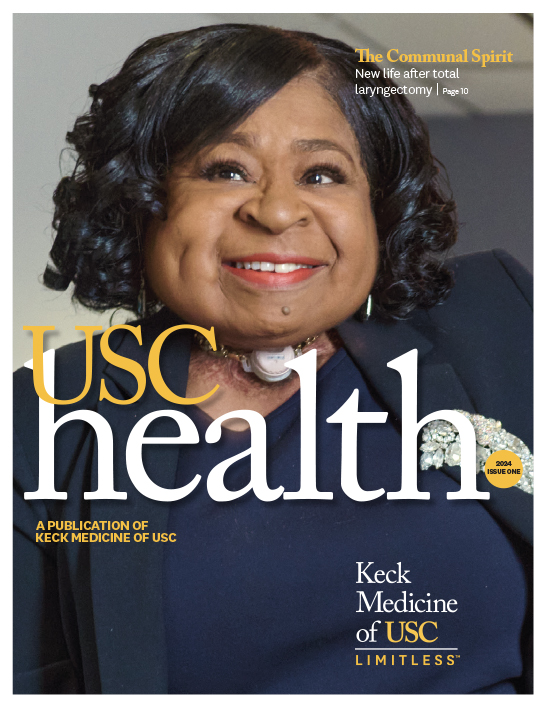
The lack of access to affordable, nutritious food puts those with chronic liver disease at a higher risk of death, new research finds.
Food insecurity, the limited availability of nutritionally adequate food, is a growing public health concern in the United States.
Over 35 million Americans experience food insecurity annually, according to the U.S. Department of Agriculture. These numbers are estimated to have risen dramatically during the COVID-19 pandemic as economic hardship has caused more Americans to lose access to an affordable, nutritious diet.
A new study by Keck Medicine of USC found that food insecurity can be deadly for patients with either nonalcoholic fatty liver disease, a buildup of extra fat in the liver that is the most common cause of chronic liver disease in the U.S., or advanced liver disease, a condition characterized by inflammation and scarring of the liver.
The results showed that people living with nonalcoholic fatty liver disease who are food insecure have a 46% higher risk of death compared to individuals with nonalcoholic fatty liver disease who are food secure.
Unhealthy diet worsens long-term outlook for liver health
For those with advanced liver disease who are food insecure, the risk of dying is 37% higher when compared to food-secure advanced liver disease patients.
Additionally, researchers estimated that 3% of nonalcoholic fatty liver disease deaths and 7% of advanced liver disease deaths could be eliminated if food insecurity was eradicated.
“These findings are very significant because while food insecurity has previously been linked to chronic liver disease, this is the first study to examine its long-term effect on individuals,” said Ani Kardashian, MD, a hepatologist with Keck Medicine and lead author of the study. “The study clearly indicates that lack of access to healthy food is a major health problem for this patient population.”
Cheaper, nutrient-poor foods tend to be laden with fat and carbohydrates, which can lead to obesity, diabetes and in turn, to fatty liver and advanced liver disease.
Ani Kardashian, MD, hepatologist, Keck Medicine of USC
Kardashian, who is also an assistant professor of clinical medicine at the Keck School of Medicine of USC, and her colleagues gathered data from the National Health and Nutrition Examination Survey, a large, nationally representative health and diet survey.
The researchers hypothesize that several factors may lead to the association between lack of healthy food choices and a greater risk of death for liver disease patients.
“Cheaper, nutrient-poor foods tend to be laden with fat and carbohydrates, which can lead to obesity, diabetes and in turn, to fatty liver and advanced liver disease,” Kardashian said. “Individuals with food insecurity also may experience competing demands between food and medical care, and this may be particularly harmful in liver disease patients who require more specialized care.”
The other study authors include Jennifer Dodge, MPH, an assistant professor of research medicine and population and public health sciences at the Keck School, and Norah Terrault, MD, MPH, a Keck Medicine gastroenterologist and division chief of gastroenterology and liver diseases at the Keck School.
Topics


